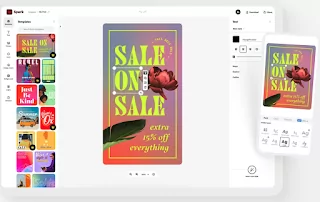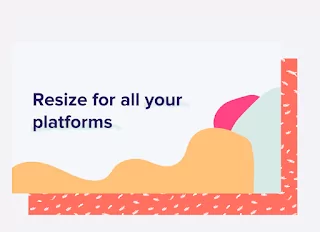Digital storytelling can be an effective way to engage students in hands-on and creative learning experiences. We all love stories and stories have the potential to intrigue, immerse, and educate in various ways.
As teachers and educators, we need to draw on the expressive and communicative strength of digital storytelling to provide students with optimal learning experiences where they get to engage wholly in the learning process: mind, body, and spirit.

In today’s post, I am sharing with you this collection featuring some of the best web tools you can use with students to create digital stories. The tools provide students with diverse media through which to design and share their stories: they can use videos, posters, presentations, and comics to compose and narrate their stories. In doing so, students will get to practice and develop key digital skills and social emotional learning competencies.
Importance of digital storytelling in teaching
Digital storytelling, the art of using digital media to convey a narrative, has gained significant importance in teaching and learning. By integrating multimedia elements like text, images, audio, and video, digital storytelling can create engaging and immersive experiences that enhance traditional teaching methods. Here are some reasons why digital storytelling is important in teaching:
1. Student engagement
Digital storytelling captures students’ attention and encourages active participation, as it appeals to different learning styles and preferences. It can also trigger emotional connections, making the learning process more enjoyable and memorable.
2. Creativity and innovation
Digital storytelling allows students to express their creativity, develop their voice, and explore innovative ways to present information. This encourages critical thinking and problem-solving skills, which are essential for success in the 21st century.
3. Collaboration and communication
Creating digital stories often involves teamwork, requiring students to collaborate, share ideas, and give feedback to their peers. This helps build communication, teamwork, and leadership skills that are vital in today’s globalized society.
4. Digital literacy
Through digital storytelling, students become proficient in using various digital tools and software, gaining essential digital literacy skills. This equips them with the ability to navigate the digital landscape and adapt to the ever-evolving technological landscape.
5. Cultural and social awareness
Digital stories can serve as a platform for exploring different cultures, perspectives, and social issues. By engaging with diverse viewpoints, students develop empathy, cultural sensitivity, and global awareness.
6. Content retention
The process of creating a digital story requires students to understand, analyze, and synthesize information. This deepens their knowledge and helps in better retention of the subject matter.
7. Personalized learning
Digital storytelling allows for the creation of customized learning experiences, catering to the unique needs and interests of individual students. This can lead to increased motivation and a sense of ownership over the learning process.
8. Assessment and feedback
Digital stories can be used as a form of assessment, providing teachers with valuable insight into students’ understanding and progress. This can also be an opportunity for students to self-reflect on their work and receive constructive feedback from their peers and educators.
Best digital storytelling tools for teachers
1- StoryboardThat

StoryboardThat is a powerful storytelling tool to use with student in and out of school. It allows teachers and students to create and tell their stories through storyboards. There are tons of storyboards to choose from or you can create your own from scratch. Its editor offers various characters, props, and editing tools to help you create your stories.
StoryboardThat can be used for a wide variety of educational purposes including: designing posters and illustrative visuals for your class, setting up assignments for your students with plot diagrams, graphic novels, character maps, timelines, and more.
2- Canva

This is my go to site for creating all kinds of expressive and educational visuals. It offers tons professionally designed templates for creating posters, infographics, comics, and many more. It also has a huge library of props some of which are free to use. Canva works right in your browser and you do not need to install any software.
You simply log in to your account, and browse through this free collection of storyboard templates to choose from.Click on the one you like and it will open in Canva editor where you can edit it the way you want. Alternatively, click on ‘Create a blank Storyboard’ to design your sory from scratch.
3- Adobe Spark

If you are a fan of Adobe products, Spark is definitely one of the best Adobe tools for teachers. You can use it to create a wide variety of graphics, collages, flyers, and animations. Use its library of templates to choose a template that suits your storytelling needs. The strength of Adobe Spark, compared with other tools in this list, is its design and editing features.
“Adobe Spark makes removing backgrounds, transforming text, and adding branding elements a breeze with intuitive tools that guide you through the process. Resize content for social media and add Photoshop-worthy effects, filters, and textures in a snap.” To learn more about how to use Adobe Spark in digital storytelling projects with your students, check out this free online course from Adobe Education Exchange.
4– Animoto

Animoto is a powerful tool students can use in narrating stories through videos. Students can create engaging videos in 3 easy steps: first they choose a pre-designed storyboard template. Next, they drag and drop their multimedia materials including video clips, images, text, and many more.
Students can also search Animoto’s library of Getty Images for stock photos and video clips to use in their digital stories. Once the video is created, it can then be easily shared with others in social medial, embedded in a website or included it in an email.
5– Make Belief Comix

Digital storytelling through comics? Make Belief Comix is definitely one of the best options out there. The site is simple and easy to use and provides all the materials students need to engage in meaningful story telling activities. You can start creating your comic from scratch: click to load a blank panel and add characters, prompts, objects, dialogue boxes, speech bubble, and many more.
Once you are done click to save your comic. Comic starters is a great feature in Make Beliefs Comix. It offers a wide variety of pre-made templates with story ideas and writing prompts that students can work on as they prepare their stories.
6– Pixton

This is a tool that lets users create stories out of cartoons and provided characters. It is so much fun and students will definitely love it. Pixton Comic Builder is an integrated feature which students can use to create various types of comics. Students can use Pixton library to get backgrounds, outfits, facial expressions, body poses, etc for their comics.




